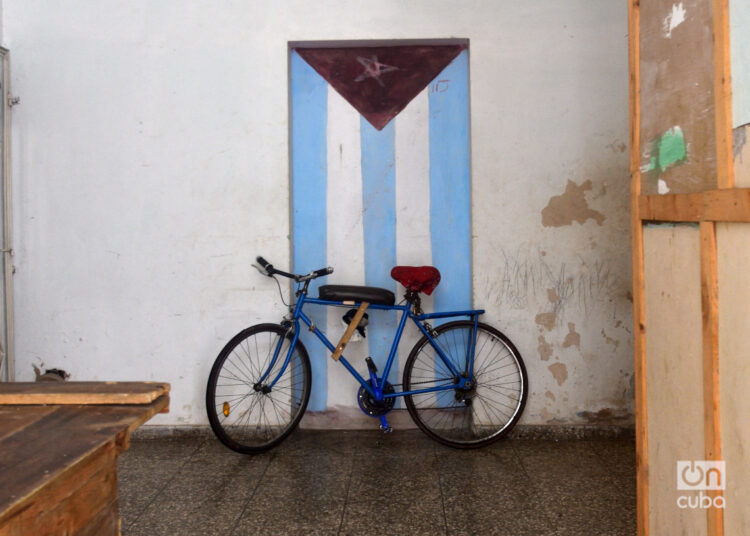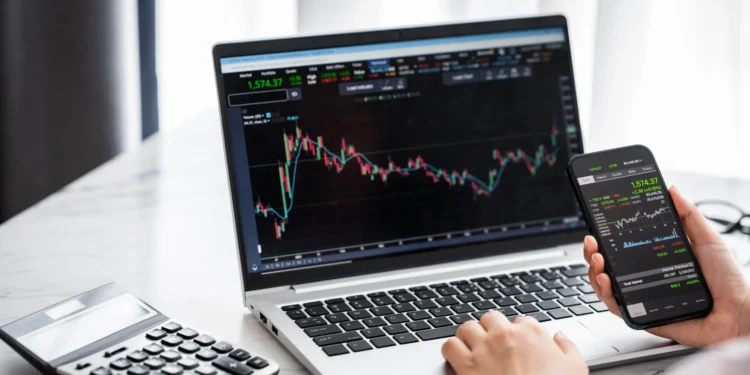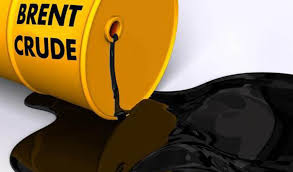
The Cuban economy is not recovering. Mired in a long crisis — accentuated by the effects of the pandemic, U.S.
sanctions, and internal difficulties and errors — it will not have a positive performance in 2024 either. This is even though the government’s forecasts initially pointed to a growth of around 2% and the implementation of a group of measures to try to get out of the rut. The acknowledgment of the impossibility — more than evident in the country’s day-to-day life — of meeting their initial forecast has come from the authorities.

However, they have not provided a figure for the new recessionary performance after the 1.9% drop in 2023. At the same time, in an exercise that is already sadly habitual, they have once again confirmed the string of non-compliance with government plans, while they have attacked the embargo/blockade and have assured that Cuba is in a “ war economy .
” Neither food production, nor exports and imports, nor foreign investment and tourism could meet the projections , while several natural phenomena took a heavy toll on the country. In this way, the already chronic hole in the state coffers has become even larger, even with the reduction of the fiscal deficit and the current account surplus celebrated as a success by the government, although questioned by economists as part of an “austerity” package. President Miguel Díaz-Canel himself considered a few days ago that the year that is ending has been “very hard” and admitted that financially the country lives “practically day to day,” with “very limited foreign currency.
” Meanwhile, Prime Minister Manuel Marrero recently confirmed before the National Assembly that his Executive’s plan to face the crisis has not managed to advance “as necessary” and has barely achieved “discrete results” in a year also marked by the fall from grace of former Economy Minister Alejandro Gil. Even so, and as they have done throughout the year, the island’s authorities continue to bet on their “macroeconomic stabilization” program and on the adoption of measures that, they say, seek to “correct distortions and reestablish the economy.” In this vein, a group of decisions has been made in 2024, several of which have been considered from outside the government as shooting themselves in the foot.
The destruction of trust: an evil of the Cuban economy Related Posts Economy 2025: Where Cuba sees growth, ECLAC sees a decline December 21, 2024 Up to 80,000 dollars for circular economy initiatives of MSMEs and other actors in Havana December 14, 2024 Biogas in Cuba: through the “paths” of changing the energy matrix December 5, 2024 Oscar Paglieri: the anointed one of “La Estrella de Italia” in Cuba December 1, 2024 var jnews_module_315484_0_676ddf8286d37 = {"header_icon":"","first_title":"Related Posts","second_title":"","url":"","header_type":"heading_1","header_background":"","header_secondary_background":"","header_text_color":"","header_line_color":"","header_accent_color":"","header_filter_category":"","header_filter_author":"","header_filter_tag":"","header_filter_text":"All","post_type":"post","content_type":"all","number_post":"4","post_offset":0,"unique_content":"disable","include_post":"","exclude_post":315484,"include_category":"13903,13904,13906,13905,13907","exclude_category":"","include_author":"","include_tag":"","exclude_tag":"","sort_by":"latest","date_format":"default","date_format_custom":"Y/m/d","force_normal_image_load":"","pagination_mode":"nextprev","pagination_nextprev_showtext":"","pagination_number_post":"4","pagination_scroll_limit":0,"boxed":"","boxed_shadow":"","el_id":"","el_class":"","scheme":"","column_width":"auto","title_color":"","accent_color":"","alt_color":"","excerpt_color":"","css":"","paged":1,"column_class":"jeg_col_2o3","class":"jnews_block_21"}; As December draws to a close, OnCuba proposes revisiting the most significant — and almost always controversial — regulations and measures of the economic policy established in the country in an extremely difficult year for Cubans. 2024 began with the adjustment package announced shortly before by the prime minister in the National Assembly. The reported measures, whose establishment would occur gradually, included increases in the price of fuel, electricity, water, and other services, the elimination of subsidies on the basic food basket, as well as new taxes and tariff measures for the private sector.
In the case of taxes , the existing tax on sales and services was extended to all marketing operations of MSMEs , which until then only applied to retail marketing. In addition, current tax exemptions were suspended, both for non-agricultural cooperatives and MSMEs, as well as a temporary exemption for new businesses. Meanwhile, tariffs went up for the import of finished goods and decreased by 50% for raw materials.
Likewise, they increased for goods such as rum and tobacco — and later beer — with the declared objective of protecting national products. As for the increase in prices, criticized for its inflationary potential and its impact on the pockets of Cubans, its entry into force was gradual and was not exempt from episodes such as the “cybersecurity incident” that delayed until March the substantial increase in fuel. Antonio Romero: “In Cuba, dogmas prevail over economic rationality” Despite the constant rumor about their elimination by the government, during the year that ends, non-commercial imports — and accompanying luggage — of food, toiletries, medicines and medical supplies without payment of tariffs remained in force, as well as other variants — to monetary or weighty limits — for the cases of unaccompanied luggage and air, sea and postal shipments.
The measure, defended by many as a necessity in the midst of the deep crisis and the growing shortages of basic products in the country, has been in the sights of the authorities and their campaign to “correct distortions” by opening the door to a lucrative business of these goods on the black market. Despite this, it was extended several times during the year, the last of them until January 31, 2025, as was the import of power plants to alleviate the dire blackouts. Also temporarily, although in this case until the end of next year, the government eliminated in November the payment of tariffs on a group of imported goods to produce on the island, both by state and private actors.
The measure, which continued what was established months ago, “seeks to stimulate national production, with emphasis on food production,” as was explained then about one of the few regulations that escaped controversy. Julio Carranza: “Time goes by and contradictions in Cuba are accumulating” A “war” economy Throughout 2024, Cuban authorities have proclaimed that the current difficult scenario of the Cuban economy, reinforced by the impact of Washington’s sanctions and the global economic context, corresponds to “war” conditions. And although this idea has been questioned by several economists, the government has relied on it to launch a group of measures.
Thus, during the Council of Ministers meeting in June, a new package was announced, which, as it was said at the time , sought — among other things — to “correct macroeconomic imbalances” and “incentivize national production,” when it was already becoming evident that the optimistic projections for the year could not be met. To this end, the government plan was “adjusted” to the conditions of a “war economy” and budget items were reduced to decrease the fiscal deficit. In addition, the approval of state budget activity was centralized, it was decided to allocate financial resources on a monthly basis “in accordance with the real income of the month,” “to calculate the fiscal impact of imports from non-state forms of management” and “to conclude the tax system for electronic commerce,” and “a single, inclusive and equal pricing policy for all subjects of the economy” was established, which has caused a great deal of controversy.
Cuba: at war with the economy Profit and price caps One of the recurring signs of government economic policies in 2024 — as in previous years — has been to set limits. And, as part of the declared will to “correct distortions” and endorse the state enterprise as the “main actor” of the Cuban economy, the almost sole recipient of such restrictions has been the private sector on which almost all the blame has fallen. In a decision questioned by both experts and private entrepreneurs, a 30% “cap” was announced in June on state sector spending in its relations with the non-state sector.
In addition, local authorities were given the power to approve the maximum prices and rates for these relations in their own territories, which, in the opinion of economists such as Pedro Monreal, “not only restricts market prices but also entails the risk of ‘corruption markets.’” Shortly afterward, and after rumors and postponements , the government also established maximum price caps for the private retail sale of six sought-after goods — chicken, vegetable oil, powdered milk, sausages, pasta, and detergent — which it exempted from paying customs duties. The measure, as many people warned, would quickly lead to the disappearance or scarcity of these products from counters and shop windows, the transfer of their sales to the black market, an avalanche of inspections and fines, and a greater burden on the already battered family economy.
Flash shot: people, life, prices...
“Reorganizing” the private sector It was coming and it finally happened. In August, the government launched an update of the main regulations on the private sector to — it claimed — “reorganize” its operation in the economic scenario of the island. Announced by the prime minister in the parliamentary sessions of July, the new regulations reinforced state control over MSMEs, cooperatives and self-employed workers.
Even though part of what was previously established is maintained, the power to approve new MSMEs was transferred to the municipalities, the list of prohibited activities for private businesses was updated, the bancarization policy was reinforced concerning said ventures, and the National Institute of Non-State Economic Actors was made official, in charge of state policy for a sector considered by the authorities as “complementary.” Pointed out by outside the government for their limitations and constraints, the regulations also included the controversial obligation that the partners of MSMEs be Cubans with effective residence, which has been interpreted as a brake on the participation of the community residing abroad, in contrast to the government’s discourse. The authorities, for their part, have reiterated that they are not carrying out “a crusade” against private enterprises and have defended the provisions as a necessary step to “correct the distortions that have been occurring.
” Omar Everleny: “Don’t clip the wings of MSMEs, let them fly” A busy year-end Not to be considered less, the last months of 2024 in Cuba have also left new announcements, measures, and controversies in terms of economic policy. In the midst of a prolonged peak of blackouts, a new decree was published at the end of November that, among other things, establishes the obligation for “large electricity consumer” state and private actors and for new businesses and investments, to produce part of their electricity through renewable sources. The concerns and criticisms generated by this decree would soon be added to those caused by a regulation that placed more limits on wholesale trade operations by non-state actors.
This regulation establishes that MSMEs and cooperatives that continue in this activity must do so only with state entities or through state wholesale enterprises, and only frees private individuals from this constraint for the sale of their own products. With this, experts point out, “the private wholesale sector is discriminated against by depriving it of its market.” With only two weeks to go until the end of the year, when reviewing his government’s economic program before parliament, the Cuban prime minister announced more measures for 2025, among which the announcement of a new exchange rate regime with “greater flexibility” has caused a stir, according to the “conditions of supply and demand.
” In addition, he confirmed the application of a “partial dollarization” in a group of activities, something considered by analysts as “a notable incongruity” with the government policy of “advancing in the de-dollarization of the economy.” Economy 2025: Where Cuba sees growth, ECLAC sees a decline Tags: 2024 Overview Cuban Economy featured.















